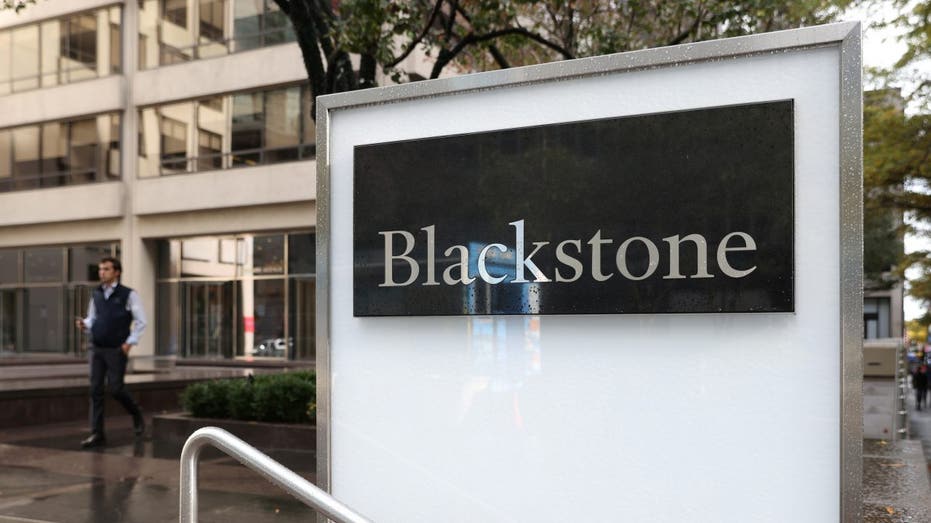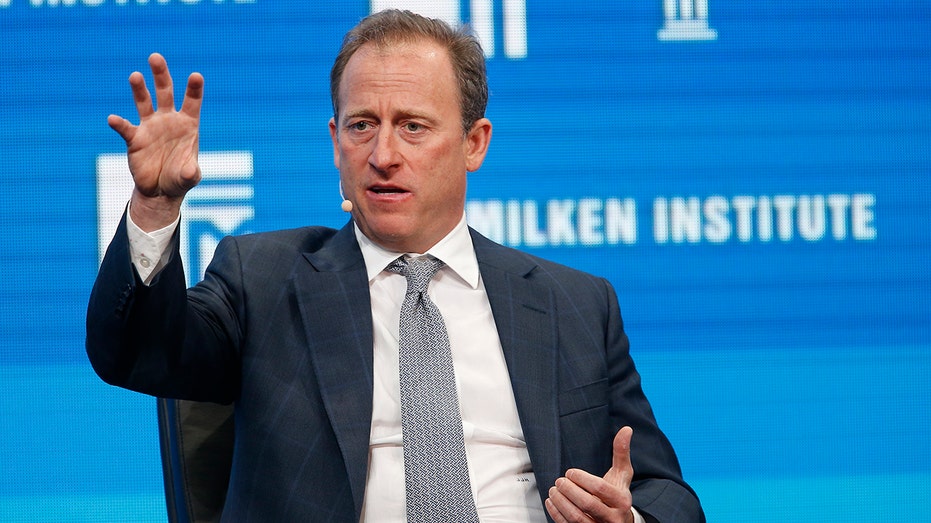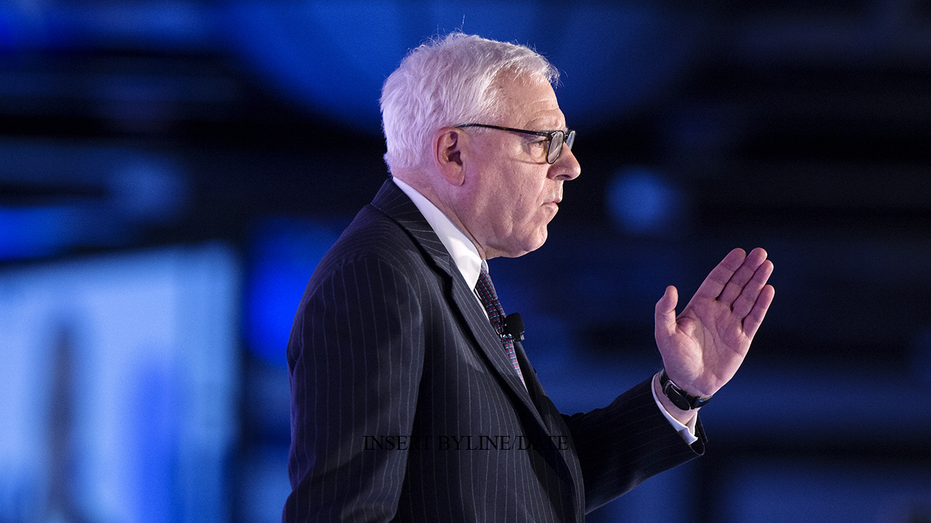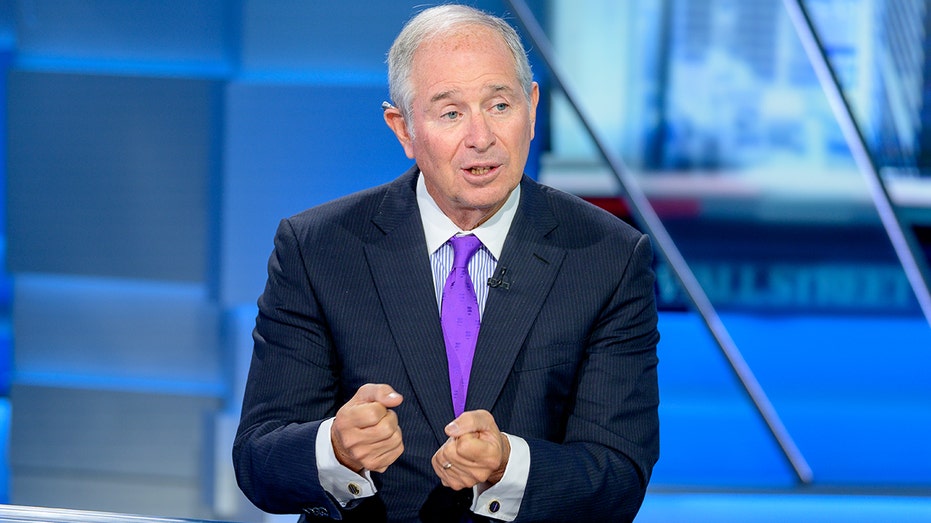Significant cracks in the $12 trillion private equity business are emerging with big firms like Blackstone Group, Apollo Global management, Carlyle Group and other big players failing to meet fundraising goals, begging investors for money and suffering losses on some major funds, Fox Business has learned.
Private equity has been among the best performing investment vehicles in recent years. The firms will buy public companies, take them private and sell them at a profit years later. They also invest in real estate and trade various securities to earn returns that often beat the markets. Unlike big banks and securities firms, they receive less scrutiny from regulators, side-stepping the so-called systemically important designation that brings tremendous oversight.
Without such oversight, the PE industry has grown in size and with that comes a degree of systemic risk to the financial industry that is difficult to quantify and potentially troubling. The sudden rise in interest rates by the Fed Reserve is now wreaking havoc on the PE firms, not unlike it has done to the regional banking business.

Signage is seen outside The Blackstone Group headquarters in Manhattan, New York, U.S., November 12, 2021. REUTERS/Andrew Kelly (Reuters Photos)
Large investors who were interviewed by Fox Business point to the floundering Blackstone Real Estate Income Trust, which some sophisticated investors say is understating losses. The fund has a net asset value of $65 billion; it’s a so-called REIT or real estate investment trust fund with holdings in commercial real estate bought at the top of the market when interest rates were at historic lows, these investors say.
One large investor with knowledge of the fund, known on Wall Street as BREIT, says Blackstone did something unusual and raised billions from individual investors. Amid investor concerns about losses, it halted redemptions. Critics like this say the fund continues to attract significant amounts of redemption requests, and has an uncertain future.
| Ticker | Security | Last | Change | Change % |
|---|---|---|---|---|
| BX | BLACKSTONE | 91.94 | -0.61 | -0.66% |
| CG | CARLYLE GROUP | 30.35 | -1.14 | -3.62% |
| APO | APOLLO GLOBAL MANAGEMENT | 64.29 | -1.51 | -2.29% |
Powered By | ||||
"Think Hotel California," the person said. "You can check out any time you like, but you can never leave."
Blackstone didn’t return calls for comment.

These same investors also point to issues at Apollo Global Management, which is known for its shrewd deal making and contrarian investment approach. But executives at Apollo are said to be "begging" uninterested investors to put money into its latest fund, the PE firm’s 10th fund, according to people with knowledge of the matter.
While Apollo has listed the performance of the last fund above 20 percent, many investors are doubting those numbers as well. Like Blackstone, many of these investments were made during the Fed’s money printing days. Higher interest rates have now collapsed not just commercial real estate prices, but the valuations of other portfolio companies.

Joshua Harris, co-founder of Apollo Global Management LLC. (Patrick T. Fallon/Bloomberg via Getty Images) (Patrick T. Fallon/Bloomberg via Getty Images / Getty Images)
"These PE funds overpaid for stuff and now we’re saying ‘you’re not generating good returns, so go pound sand,’" said one official at a major public pension fund who spoke on the condition of anonymity. "They have taken their eyes off the collective ball and they’re now collectively panicking that they’re badly missing their numbers."
It’s unclear how much the recent decline in business has hurt the PE business, though the potential is significant. Many of the PE firms are now publicly traded and their stock price has begun to reflect the tumult. Shares of Blackstone are down around 20% over the past 12 months, Carlyle Group around 14% while shares of Apollo are up around 14%. The Standard & Poor’s index of large company stocks has fallen around 6% during that time.
PE attracted more than $1 trillion in investor money roughly from 2017 through 2021, when the Federal Reserve pumped significant liquidity into the financial system amid the covid pandemic. PE critics say the firms, awash with cash and liquidity, began snapping up investments at unrealistic valuations, and pushed brokers through higher commissions to entice their top clients into new funds.

David Rubenstein, co-chief executive officer of the Carlyle Group LP, speaks during the International Economic Forum Of The Americas (IEFA) in Montreal, Quebec, Canada, on Tuesday, June 12, 2018. Photographer: Christinne Muschi/Bloomberg via Getty Im (Getty Images / Getty Images)
State pension funds and endowments were targets of the fund-raising efforts, and they are now balking at putting in new money while trying to redeem what’s already in these funds.

With rising and sticky inflation, the Federal Reserve has been steadily raising rates over the past year. Its closely watched Fed Fund Rate is now in the 4.75% - 5% range. Higher interest rates depress real estate prices because it costs more to borrow. It also weakens the valuation of PE portfolio companies that were inflated when the Fed was printing money.
The rate increases are likely to continue. Larry Fink, the chief executives officer of money-management powerhouse BlackRock (no relation to Blackstone) recently said on the "Claman Countdown" that he believes "we’re going to have two to three more rate increases…The reason why is I believe interest rates need to go higher, especially in the short end, because we have stickier inflation."
| Ticker | Security | Last | Change | Change % |
|---|---|---|---|---|
| BLK | BLACKROCK INC. | 696.38 | +1.14 | +0.16% |
The prospect of even higher interest rates could further weaken the performance of PE funds with potentially cataclysmic results, critics say. Several mid-sized regional banks, like Silicon Valley Bank, and Signature Bank, have already succumbed in this higher interest rate environment, having to pay more for deposits than they made on loans. First Republic Bank was teetering on the brink of extinction and needed a massive cash infusion to stay afloat.

Blackstone CEO Stephen Schwarzman as he visits "Maria Bartiromo's Wall Street" at Fox Business Network Studios on Sept. 18, 2019, in New York City. (Roy Rochlin/Getty Images)
So far, analysts are not predicting imminent collapses among PE firms, but the prospect of higher rates has certainly set off alarm bells inside the industry.
"I bet right now (Blackstone CEO Steve) Schwarzman is calling everyone he knows in DC to get the Fed to back off," said one large investor about the PE’s firms’ politically connected billionaire CEO and founder. "The Fed won’t, of course, because no one is going to bailout a bunch of fat cats."
No comments:
Post a Comment